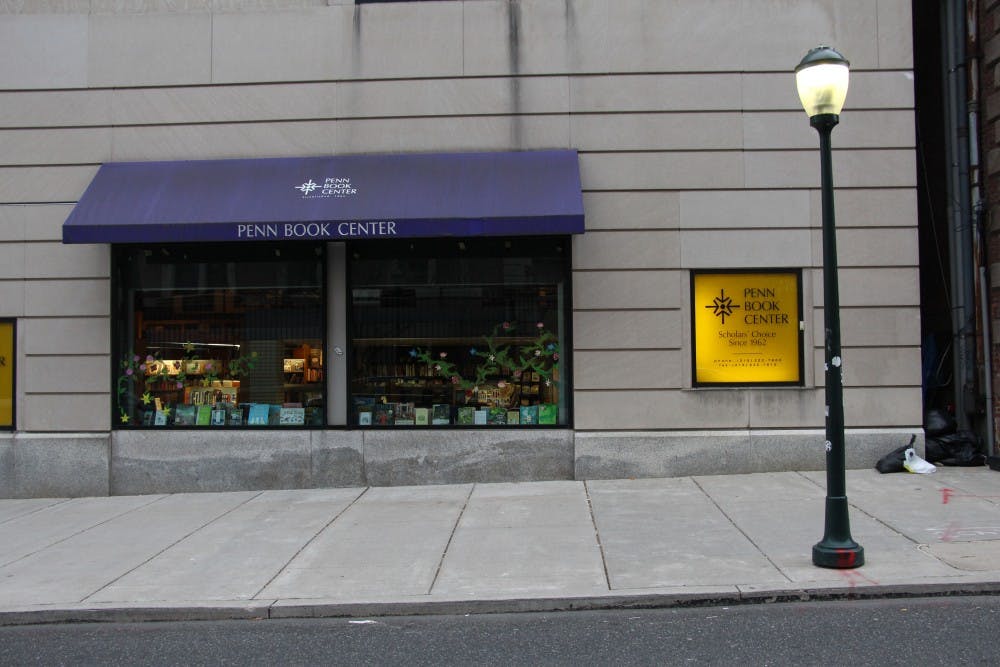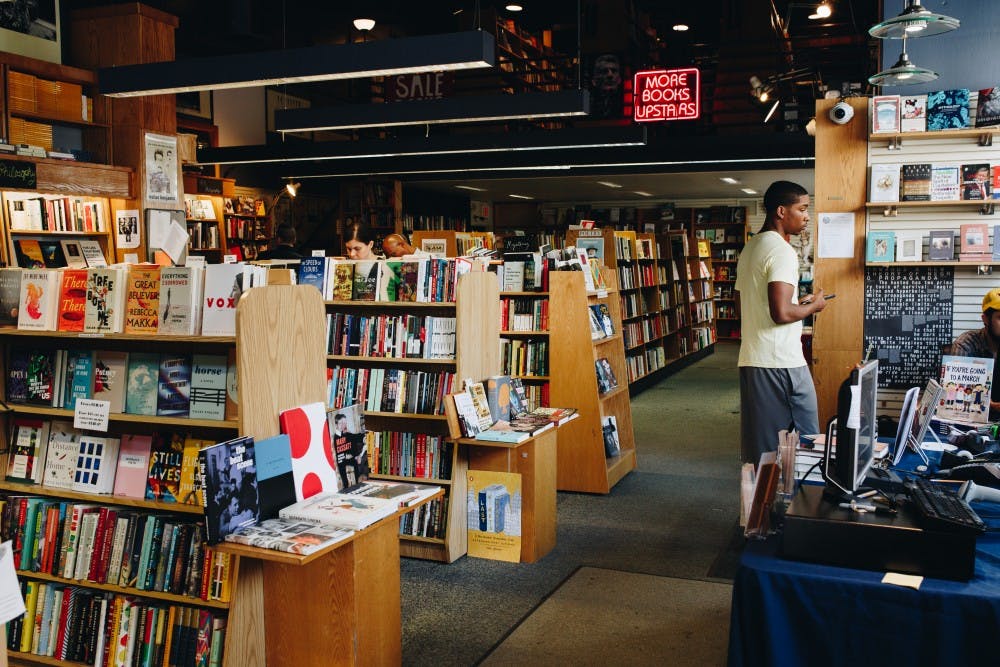
The bookstore will not be in business by the time students return to campus in the fall.
Credit: Tamara WurmanPeople worry about closing the Pennsylvania Book Center, a shop on the corner of 34th and Sansom. But what difference can the presence of a small “independent” bookstore possibly make to a university community with its very own Barnes & Noble?
In the now close to 40 years I’ve been at Penn, as both a librarian and an English literature teacher, the Penn Book Center has made a difference I could almost calculate (if only I had kept better records!). A reader and a book-buyer, I’ve probably bought more than 4,000 books at the Penn Book Center. By comparison, if the total number of books I’ve bought at the old Penn Bookstore and the newer Penn Bookstore during the same number of years is as high as 100, I’d be surprised.
Like the chain of which it’s a branch, the Penn Bookstore has a lot of books. They’re even occasionally easy to find, despite the mass of tchotchkes that occupy much of its sales floor. Best-sellers? Yup. Lots of contemporary fiction? Less, but some. Poetry? Drama? Ditto. History. Political stuff from many sides. Current events. Cookery. Gardening. Children’s books. And so forth. Surely, this cannot be a problem … can it?
But it is. Almost never – rarely in my neighborhood Barnes & Noble, and never at the Penn Bookstore – am I surprised to find a book I didn’t already know about.
Both Penn faculty and students visit and purchase from the Penn Book Center.
Surprise, it seems to me, is what a bookshop is for.
Yes, I also buy from Amazon. Who has not? Some books are not at the Penn Bookstore, nor the Penn Book Center, nor House of Our Own: each anticipates too few buyers, probably rightly, for a specialized or, worse, expensive title. Book-buying may be a clean habit, but it’s a pricey one. Habitually indulged, it also eats up space like almost nothing else you can do to your home. Some dedicated readers (fortunately, for the bulk of my livelihood) find libraries useful as a way of evading both expense and space concerns. But sometimes you want a book (today! or at least tomorrow!) that’s neither in stock nor on the library shelf. Sometimes a price differential can’t be ignored. Some books are just too heavy to schlep: delivery is the better choice.
Yet Amazon too only tells me about books I already know about. It’s no source of surprise. The Penn Book Center is my source for surprise: the book I didn’t know existed, the book I didn’t know I wanted, the book I didn’t even know I needed, although – once I see it, pick it up, and read a bit – I know immediately that I have always needed it, and in my own copy, too. At Amazon, I find what I already know. Its fabled algorithms, however, have never – not ever – taken me to a book I either didn’t know about or, if I didn’t know about it, wanted. Live non-algorithmic human booksellers at the Penn Book Center have. They still do.
I need a place to browse, preferably with booksellers who know their stock and me. A place that, simply, as a matter of course, stocks small press publications. I can find out about prose (and sometimes even poetry) from Farrar, Harper, Knopf, Penguin, and Simon & Schuster, in the New York Times or the Washington Post. Who tells me about Archipelago, Headmistress, Nouvella, or Pushkin? Or about most university press publications (which Barnes & Noble almost never, and the Penn Bookstore rarely, stocks)? Where can I find “standard” paperback editions of older literature – Oxford University Press’ World's Classics series, the competing Penguin editions, or Canada’s Broadview Press? Do pamphlets and chapbooks, even occasional self-published works, turn up at other bookshops?
Colleges and universities are increasingly becoming places that prepare students for careers, a goal for which teachers and staff are necessary. That’s not simply a good thing or a bad thing. But it would be a bad thing if they also stopped being places that give students – as well as teachers and staff – time and facilities to explore. Or, if you prefer, to goof off, during the long march to the right investment bank, hospital, or Fortune 500 executive suite. No such time? No such facilities? Then colleges and universities might as well simply re-label themselves as training schools. But Penn, whatever else it is, is not a training school, nor does it want to be one.
If a college or a university wants to leave possibilities for exploration, for surprise, open for everyone it serves, then among the facilities it can provide – especially when such a facility is already here and functioning – is a bookstore: one that has always been and still remains stocked with both books and booksellers possessing the potential to surprise a reader.
DANIEL TRAISTER works in the Kislak Center for Special Collections, Rare Books, and Manuscripts in Van Pelt-Dietrich Library. He has also taught early modern literature and several other classes for the Department of English.
The Daily Pennsylvanian is an independent, student-run newspaper. Please consider making a donation to support the coverage that shapes the University. Your generosity ensures a future of strong journalism at Penn.
Donate



